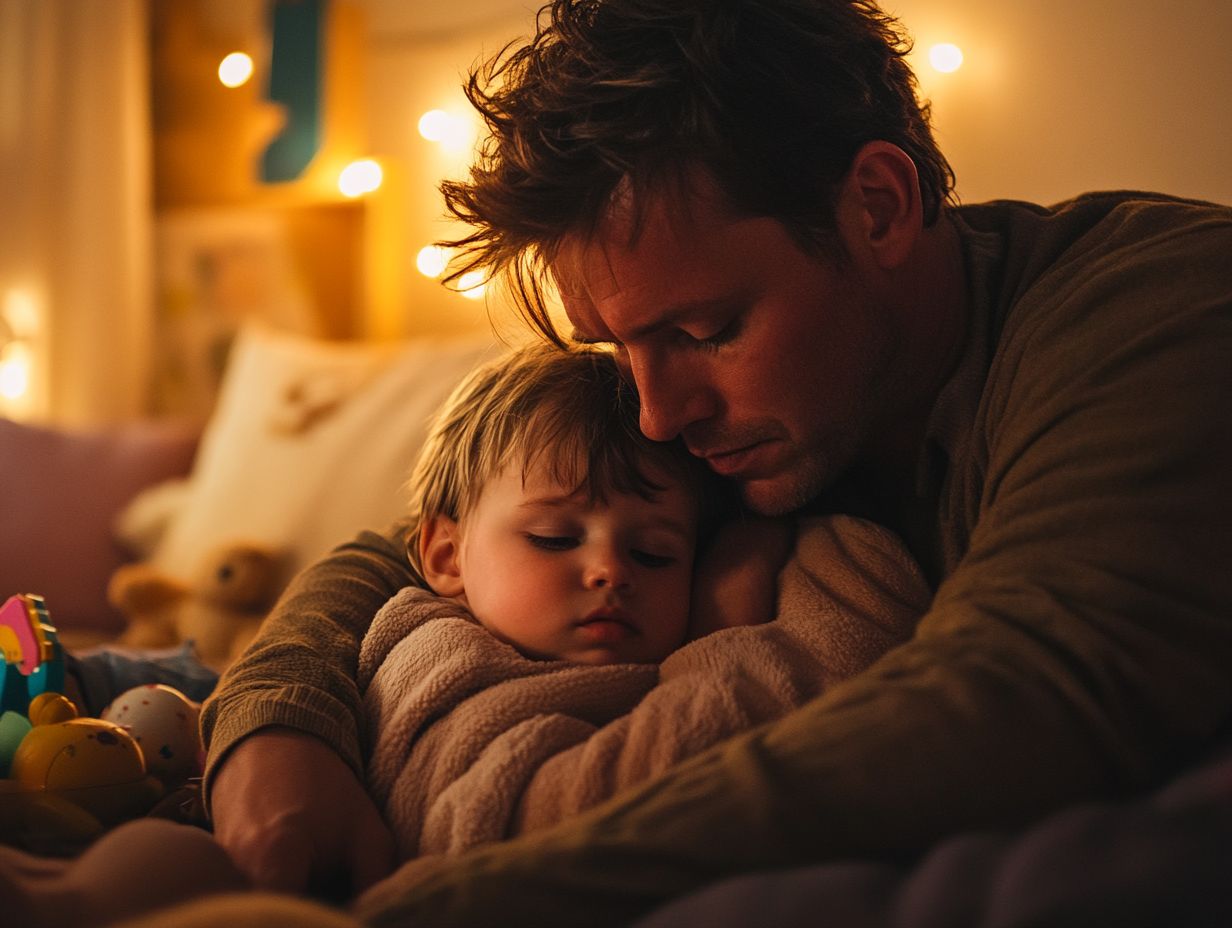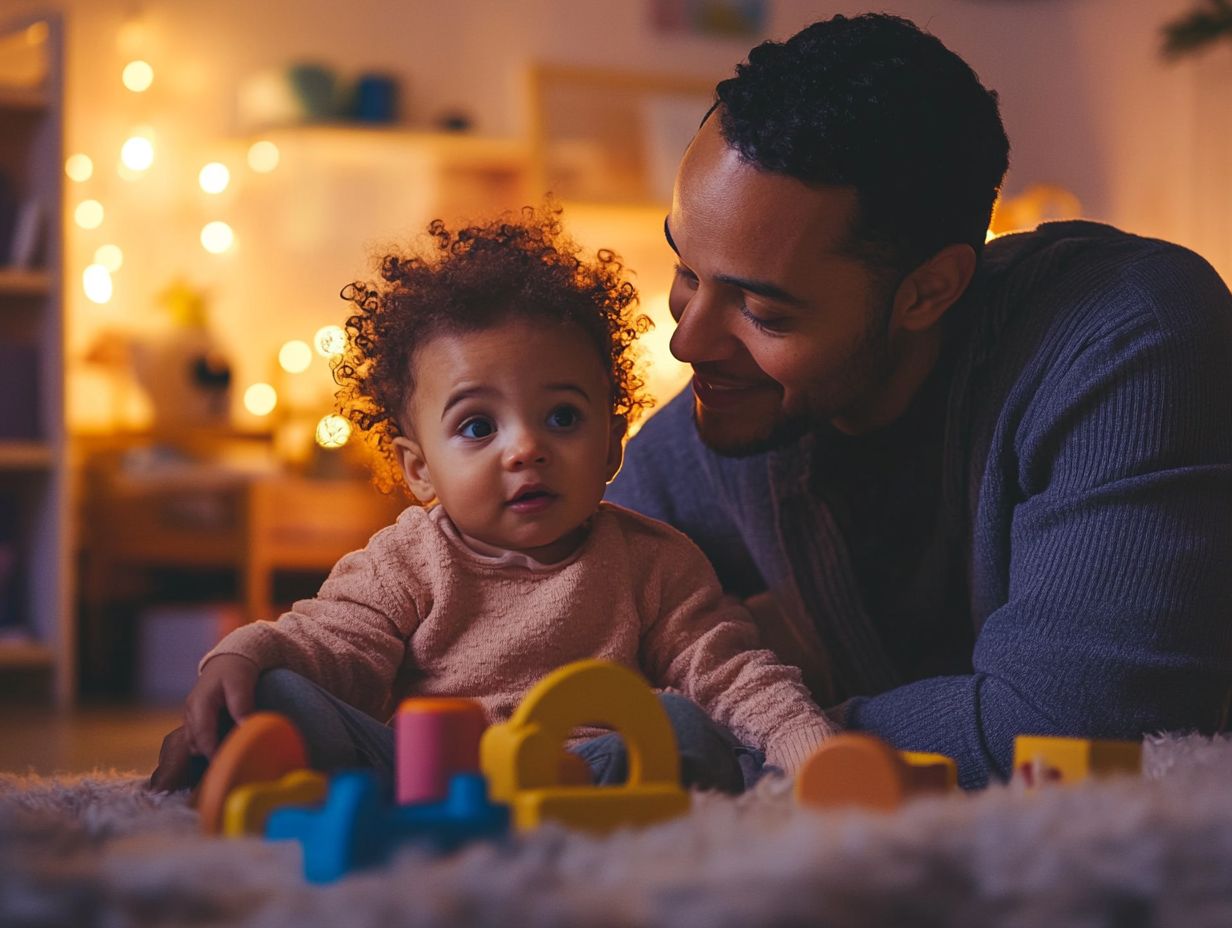Supporting children of cancer patients involves implementing strategies that address their emotional, educational, and social needs. Open communication, a strong support system, and effective coping strategies are essential in helping children navigate the challenges associated with a parent’s cancer diagnosis during this medical crisis.
Key strategies include:
- Communicate Openly and Honestly: Foster trust by discussing the treatment plan and involving children in conversations about cancer in a way that encourages them to express their feelings.
- Provide a Support System: Utilize community resources, including meal delivery, emotional support groups, and help with childcare, to alleviate daily burdens and enhance resilience. Encourage family members and friends to offer to visit, run errands, or send mail to show support.
- Help Them Understand Cancer and Treatment: Use age-appropriate information, storytelling, and role-play to demystify cancer and its treatment, creating a safe space for discussion.
- Encourage Self-Care and Coping Mechanisms: Promote activities like mindfulness and art therapy to help families manage stress and foster emotional well-being.
- Seek Professional Support if Needed: Consult mental health professionals and support groups to address persistent anxiety or depression.
Implementing these strategies not only helps children cope with their emotions but also supports their development and resilience during and after a parent’s treatment, ensuring a balanced and supportive family environment. This also involves maintaining a consistent daily routine and focusing on the family needs.
Key Takeaways:
1. Communicate Openly and Honestly

Open and honest communication is essential for families dealing with childhood cancer.
Maintaining trust and emotional support requires clear discussions about the treatment plan and the roles of the healthcare team.
Regular updates from the pediatrician keep families informed about treatment progress.
Families should actively engage in discussions, ensuring everyone feels comfortable sharing thoughts and emotions.
- Encouraging children to express their feelings without fear of judgment helps them voice their concerns.
2. Provide a Support System
Providing a support system for families dealing with childhood cancer involves practical assistance, emotional backing, and community involvement.
A support system includes services like meal delivery, childcare, and help with errands to ease daily burdens. Practical support from a caring community is vital during hospital stays.
It also encompasses emotional support from family, friends, and groups, enhancing resilience during challenging times.
Social media can connect families experiencing childhood cancer and generate community support through fundraising and shared experiences. It can be a platform to share a fundraising idea and highlight the impact of such efforts.
3. Help Them Understand Cancer and Treatment
Helping children understand childhood cancer and its treatment involves providing age-appropriate, clear, and simple information to make complex concepts clear. A childhood cancer guide can be a useful resource in this process.
Storytelling helps children relate to and digest information about cancer and treatment.
Role-playing scenarios allow children to act out experiences, normalizing hospital visits and treatments.
Encouraging open dialogue within the family creates a safe space for children to express fears and concerns about cancer and treatment.
4. Encourage Self-Care and Coping Mechanisms
Encouraging self-care and coping strategies in families facing childhood cancer involves promoting mindfulness exercises, art therapy, and family game nights. Coping activities like these can help manage the emotional stress of hospital visits and treatments.
Mindfulness helps families center themselves during stress. Art therapy provides a creative emotional outlet. Family game nights offer enjoyable distractions that strengthen bonds.
Establishing a structured routine prioritizing relaxation supports open discussions about emotions, fostering a supportive environment.
5. Seek Professional Support if Needed

Seek professional support by consulting pediatricians for referrals to mental health professionals in pediatric oncology, who are part of the health care team. Join support groups for shared experiences and emotional support, which can be found both online and in-person.
Recognize signs like persistent anxiety or depression, acknowledging potential mental health conditions, and seek therapy or counseling services if needed.
How Does a Parent’s Cancer Diagnosis Affect Children?
A parent’s cancer diagnosis affects children by causing emotional distress, behavioral changes, and disruptions in daily routines and family dynamics.
Children may experience fear, anger, and confusion about the diagnosis and treatment process.
Behavioral changes, such as withdrawal from activities, irritability, and academic struggles, are common. It’s important to help siblings understand and cope with these changes as well.
Open conversations, a trust environment, and supportive environments can help children express their feelings and cope with the situation.
What Are Some Common Reactions and Emotions Children May Experience?
Common reactions and emotions children may experience include shock, anxiety, sadness, and guilt in response to a parent’s cancer diagnosis.
Children may also show fear through tears or withdrawal and may act out with anger.
Acknowledging these emotions and providing support can help children cope.
How Can Parents Help Children Cope with Their Emotions?
Parents can help children cope with their emotions by creating a safe environment for open communication and expression, ensuring that difficult discussions are approached with sensitivity and care.
Parents should set aside regular family time for discussions, encourage creative activities like art or play, and explore professional therapy or support groups.
Engaging in shared family activities strengthens bonds and helps children manage emotional challenges.
What Are Some Ways to Support Children During Treatment?

Children can be supported during treatment by providing emotional support, maintaining routines, and creating a comforting environment.
Support methods include:
- Organizing care packages with snacks and toys
- Incorporating daily routines for stability
- Planning engaging activities like arts and crafts during hospital visits
Involving siblings in these activities also strengthens family bonds.
How Can a Parent’s Cancer Diagnosis Impact a Child’s Development?
A parent’s cancer diagnosis impacts a child’s development by affecting emotional growth, social interactions, and understanding of health.
Children may experience increased anxiety, withdrawal, and changes in peer relationships due to focusing on the parent’s illness.
Open communication and emotional support help address these challenges by fostering resilience and stability.
What Are Some Tips for Helping Children Adjust to Life After Treatment?
Tips for helping children adjust to life after cancer treatment include:
- Establishing a consistent daily routine to create stability.
- Encouraging open emotional communication to ease anxiety.
- Reintroducing normal family activities like meals and games.
- Seeking professional counseling for additional support.
- Providing ongoing emotional support from family members.
Frequently Asked Questions
What are the 5 strategies for supporting children of cancer patients?

The 5 strategies for supporting children of cancer patients include: open communication, creating a safe and supportive environment, involving the child in the caregiving process, seeking outside support, and addressing the child’s emotional needs.
How can open communication help support children of cancer patients?
Open communication allows the child to express their feelings and ask questions about the cancer diagnosis and treatment. It also helps to build trust and understanding between the child and their parent or caregiver. Strong partnerships with the treatment team, including the pediatric nurse, are crucial for clear and consistent communication.
Why is it important to create a safe and supportive environment for children of cancer patients?
A safe and supportive environment can help alleviate stress and anxiety in children. It also provides a sense of stability and normalcy in the midst of a difficult situation.
How can involving the child in the caregiving process benefit them?
By involving the child in the caregiving process, it gives them a sense of control and responsibility. It also helps them feel included and valued, which can boost their self-esteem. Engaging children in quality time and activities can further support their emotional well-being.
What kind of outside support should families of cancer patients seek for their children?
Families can seek support from therapists, support groups, and other organizations that specialize in supporting children of cancer patients. These resources can provide a safe space for children to express their feelings and connect with others in similar situations.
Why is it important to address the emotional needs of children whose parents have cancer?
Children may experience a range of emotions, including fear, anger, and sadness, when a parent is diagnosed with cancer. It is important to address these emotions and provide support for the child’s mental and emotional well-being.





